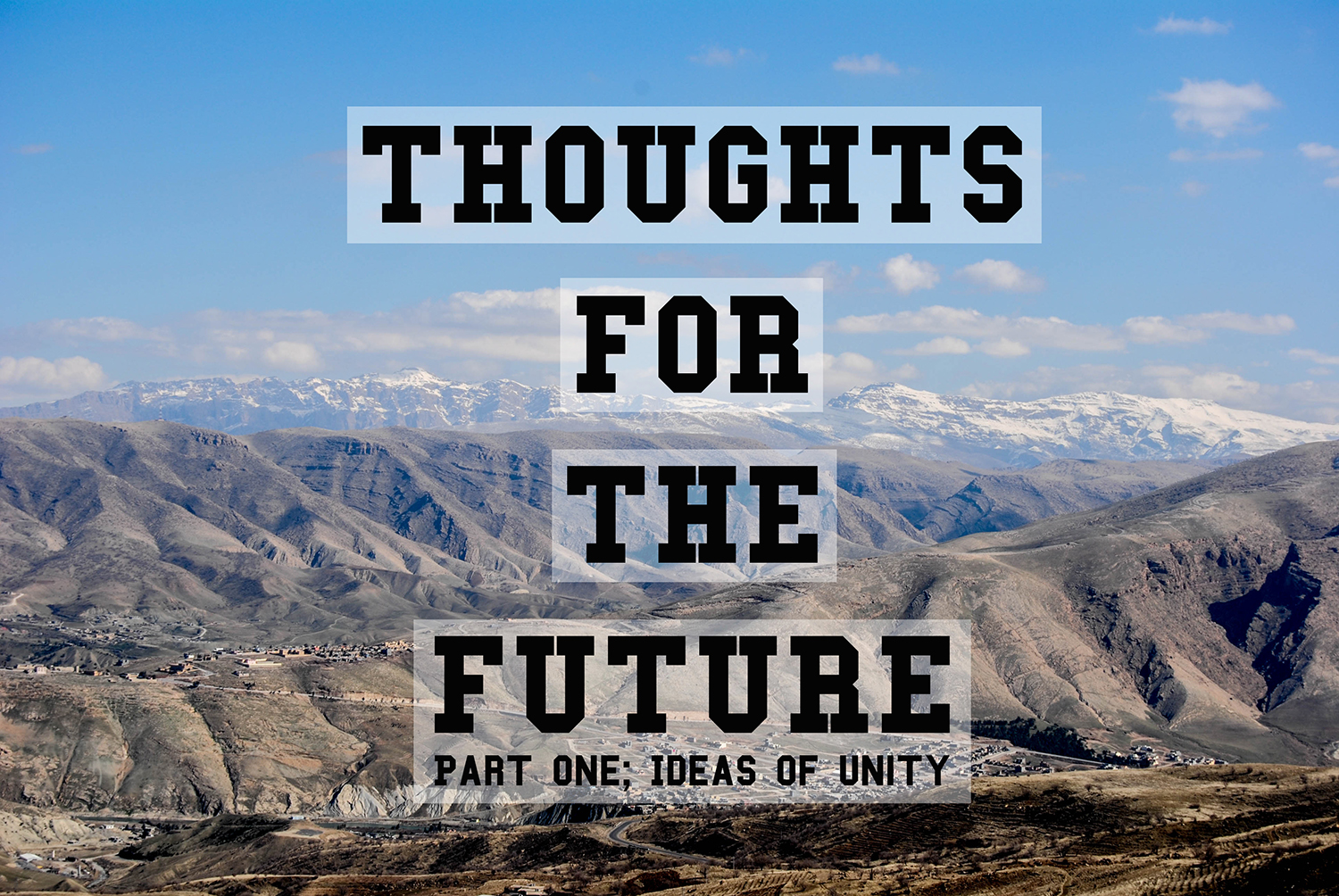To make our way forward, you have to understand that the current situations have presented itself throughout past decisions.
This is not to criticize any one, our leaders or the Kurdish nation. But it’s more a learning process to a way forward, so our strategy as a nation takes full opportunity to better the Kurdish identity.
In an argument, many will say that nations like, UK, USA, Turkey, Iran, Iraq and Syria are the ones that made our situation worse, I agree with that. But you must always surrender to the mistakes we made ourselves, as well.
This is more of my own thoughts, it is not to point out the mistakes that we’ve made in the past 100 years and longer.
In the coming articles I shall point out some situations and thoughts of ideas to a better way forward, true that most of us already know, but we don’t always stand firm behind the significant impact it has and will have in the future.
Unity:
To have unity you must first understand it.
Some see unity as when a majority of people working towards a certain point and achieving a common goal, that is true. However, unity is much more than that, the idea is centered around little things like referring to a Kurdish part as Turkish Kurdistan, Kurdistan of Iran. These small uses of wording have more impact than you might want to believe.
My first encounter with this was in 2004, after living 7 years in diaspora, my parents and siblings taught me about the greater Kurdistan. In our household in Holland I only understood the terms Bakur (north), Basur (South), Rojava (west) and Rojhelat (east).
At the time from which I arrived in Hawler in 2004 there were a lot of Kurds migrating from Bakur (North) to find work in the south. Talking to many family members, friends and majority of Kurds, they all seemed to address them as Turkish Kurds. I could have corrected them, but as a young boy I got confused about the different terms used. My thoughts started to wonder, are those Kurds different then us, and if they are coming here to find work and people are talking down to them label them as lower class Kurds then does that also apply to me?
The point of the story being unity resides in the smallest details, like the terms we use for the parts of greater Kurdistan, religion and language dialect and accent.
We know that the Kurdish nation came from nomadic tribes, which makes it even harder to find certain unity within so many different aspects of the Kurdish nation.
The Kurdish unity has always been riding on a thin line, as tribe’s joined different armies to get rid of other tribes that controlled a certain area or funds. But even now in the recent years, our political parties have been fighting for a cause that could feed themselves.
I remember a Peshmerga song, I think it dates back to the 80’s, and there is a line saying, “Yan Kurdistan, yan naman”. Now to wonder why there was never such a mind-set within our people at all times, even in those devestating circumstances?
Throughout the years as I learned and watched my surroundings, I came to a conclusion that indeed unity is on a very thin line within the Kurdish nation, because we forgot to focus on the small details that creates unity.
When and wherever you talk to any Kurd they will always tell you that we are completely united everywhere. But that’s an idea we want to believe, a mind-set we have put in our own minds.
It’s true that Kurds are now more aware of each other, but as I have mentioned above we lack the small detail which can truly unify the Kurdish people. Kurds from all parts of greater Kurdistan need to look at each other with the same values they look at their own members of their family, only if we find that equality can we truly make our way forward to protect the Kurdish identity.


